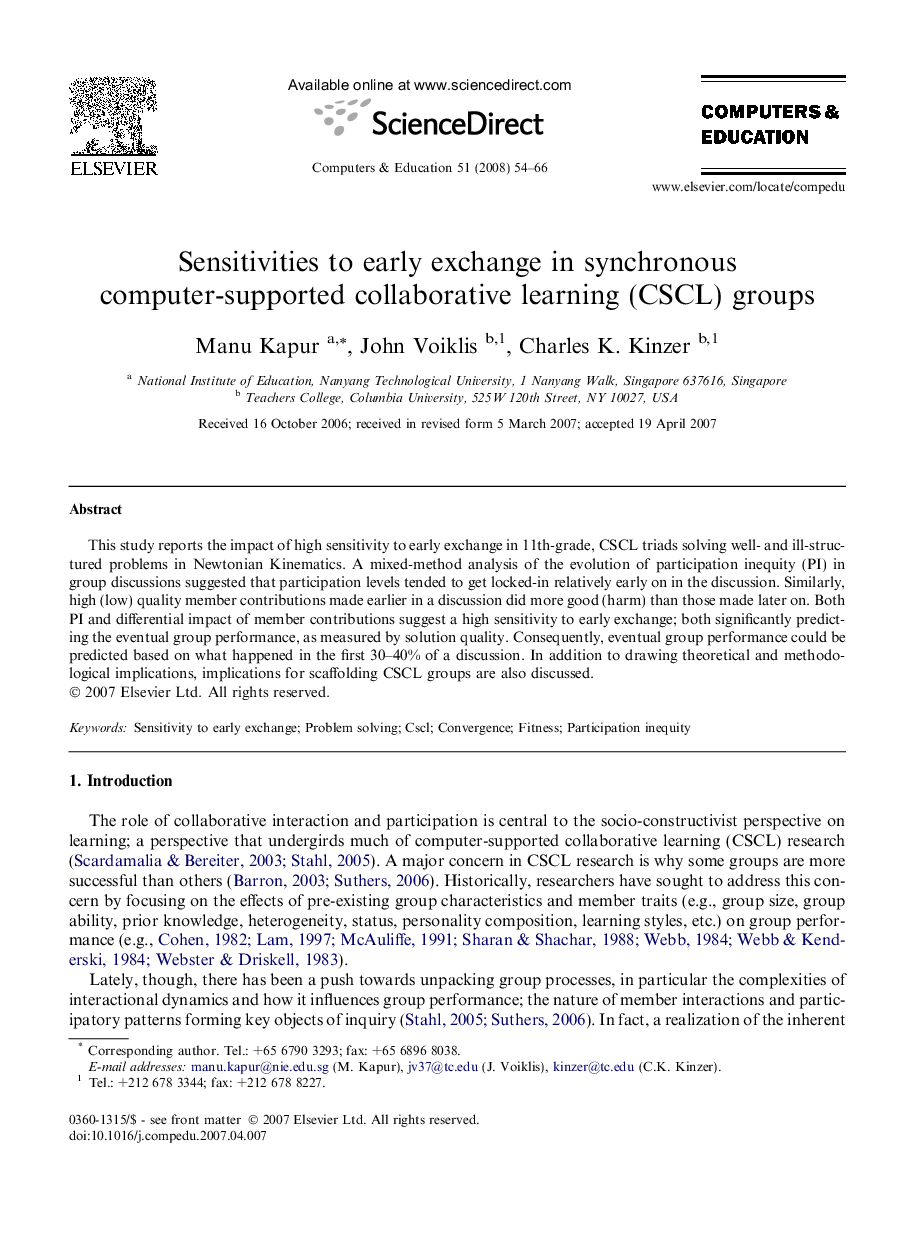| Article ID | Journal | Published Year | Pages | File Type |
|---|---|---|---|---|
| 349383 | Computers & Education | 2008 | 13 Pages |
This study reports the impact of high sensitivity to early exchange in 11th-grade, CSCL triads solving well- and ill-structured problems in Newtonian Kinematics. A mixed-method analysis of the evolution of participation inequity (PI) in group discussions suggested that participation levels tended to get locked-in relatively early on in the discussion. Similarly, high (low) quality member contributions made earlier in a discussion did more good (harm) than those made later on. Both PI and differential impact of member contributions suggest a high sensitivity to early exchange; both significantly predicting the eventual group performance, as measured by solution quality. Consequently, eventual group performance could be predicted based on what happened in the first 30–40% of a discussion. In addition to drawing theoretical and methodological implications, implications for scaffolding CSCL groups are also discussed.
